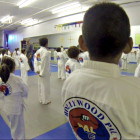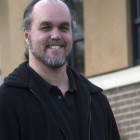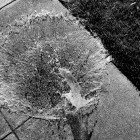
Hollywood Kids See Action with Cops
|
The Hollywood PAL program, one of the largest Police Activities/Athletics League programs in the Los Angeles area, gives students a positive alternative to gangs and drugs.
Juvenile Justice Information Exchange (https://jjie.org/page/250/)

In late September, Torri was driving down the highway with her 11-year-old son Junior in the back seat when her phone started ringing.
It was the Hamilton County Sheriff’s deputy who worked at Junior’s middle school in Chattanooga, Tennessee. Deputy Arthur Richardson asked Torri where she was. She told him she was on the way to a family birthday dinner at LongHorn Steakhouse.
“He said, ‘Is Junior with you?’” Torri recalled.
Earlier that day, Junior had been accused by other students of making a threat against the school. When Torri had come to pick him up, she’d spoken with Richardson and with administrators, who’d told her he was allowed to return to class the next day. The principal had said she would carry out an investigation then. ProPublica and WPLN are using a nickname for Junior and not including Torri’s last name at the family’s request, to prevent him from being identifiable.
When Richardson called her in the car, Torri immediately felt uneasy. He didn’t say much before hanging up, and she thought about turning around to go home. But she kept driving. When they walked into the restaurant, Torri watched as Junior happily greeted his family.
Soon her phone rang again. It was the deputy. He said he was outside in the strip mall’s parking lot and needed to talk to Junior. Torri called Junior’s stepdad, Kevin Boyer, for extra support, putting him on speaker as she went outside to talk to Richardson. She left Junior with the family, wanting to protect her son for as long as she could ...

The Hollywood PAL program, one of the largest Police Activities/Athletics League programs in the Los Angeles area, gives students a positive alternative to gangs and drugs.

The stampede to embrace premature, exaggerated “teenage brain” speculations downplay crucial environmental contexts.

News 21: Back Home, Carnegie-Knight News21, Walter Cronkite School of Journalism and Mass Communication at Arizona State University won a first prize from the Online News Association in the Student Group – Large category.

This week in juvenile justice: protection for those who call 911 in case of an overdose. A look at New Orleans, America’s murder capital. A bill seeks to raise the age for misdemeanor offenses. Studies on solitary confinement show increased risk of recidivism. And: how systemic racism is part of our culture.

Eric Holder, the first African-American attorney general, resigned on Thursday, though he’ll remain at his post until his replacement is confirmed.

A senior prank water balloon fight in North Carolina got out of hand, leaving seven youths arrested that day and charged with disorderly conduct.

The renewal of an important public-private collaboration between the Office of Justice Programs and the John D. and Catherine T. MacArthur Foundation is a major accomplishment for the juvenile justice field, which has long called for more federal leadership and resources for reforms.

Georgia is the 15th U.S. state to pass a law ensuring those who call 911 in case of an overdose will not face criminal charges. These so-called Good Sam laws, the first of which was passed in New Mexico in 2001, aim to save lives by getting medical help, not criminal charges, for someone who has overdosed. The laws also protect the friend who calls 911 and stays with the person.